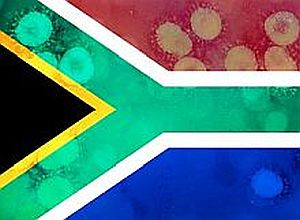Some are spinning the yarn that COVID-19 shows that South African can manage immense healthcare projects. It proves the opposite, writes Financial Mail editor Rob Rose.
Rose writes:
This weekend, City Press quoted an unnamed official as saying the success of SA’s Covid-19 response shows just how well National Health Insurance (NHI) would work.
It’s a stupefying conclusion to draw from SA’s Covid-19 experience — studded as it was with generous theft of relief funds, politicians’ families lapping up tenders, and officials hoarding food parcels for themselves or, worse, trying to sell them to the people they were meant for in the first place.
Intuitively, you’d be more inclined to conclude that … [it] should rather be a flashing red light for NHI.
Corruption Watch’s Kavisha Pillay agrees that Covid-19 most certainly was a dry run for NHI — and SA failed dismally. Pillay says while everyone supports the idea of universal health care, Corruption Watch has flagged corruption “as the biggest threat to the realisation of this”.
NHI doesn’t just face a governance hurdle — there’s the rather more pressing problem of where, in a Covid-ravaged economy with a looming R500bn deficit, SA will find the R256bn in spare change needed to make it happen.
Alex van den Heever, adjunct professor at Wits University ’s School of Governance, says funding NHI now, with a brittle economy, would be entirely inconceivable, he says. “Fiscally, it’s a nonstarter. During the level 5 lockdown, SA was losing R13bn per day, so we’re not in a position to raise more money for NHI from taxes, and we can’t borrow more,” he says.
It also seems odd to argue, as the official did in the City Press article, that the government has shown it can work well with the private sector on health care. Van den Heever says the public health system and the National Health Laboratory Service weren’t up to the task. “Initially, the government said the public sector would deliver 36,000 tests per day by April. It never got close. By contrast, the private sector is now exceeding 40,000 tests per day. It illustrates the credibility gap on anything the government says.”
Aslam Dasoo, a doctor who co-convened the Progressive Health Forum and is a member of the ANC Stalwarts and Veterans group, agrees. “Covid-19 has pushed the idea of NHI further away than we can imagine. But there’s still a political commitment to it, which is why we still hear all the talk — even though they’ve never been able to answer the cogent rebuttals about where we’ll get the money.”
“Some say people are paying through the nose for private medical aid because of ‘middle class fear’. As a physician, I can tell you it’s not just ‘middle class fear’ — it’s because of the real decline in quality and accessibility of public health care,” he says.
Van den Heever, ever the cynic, is convinced NHI was never about fixing health care; rather, it was to implement a system that centralises patronage, so that corrupt politicians could benefit.
“Look at what happened with food parcels under Covid-19. The government suddenly prohibited anyone else from distributing parcels, creating a single avenue for tenders. And then look at the looting,” he says.
[link url="https://www.businesslive.co.za/fm/opinion/editors-note/2020-09-16-rob-rose-the-sins-of-covid-19-have-made-nhi-an-even-more-unlikely-fantasy/"]Full Financial Mail article[/link]

